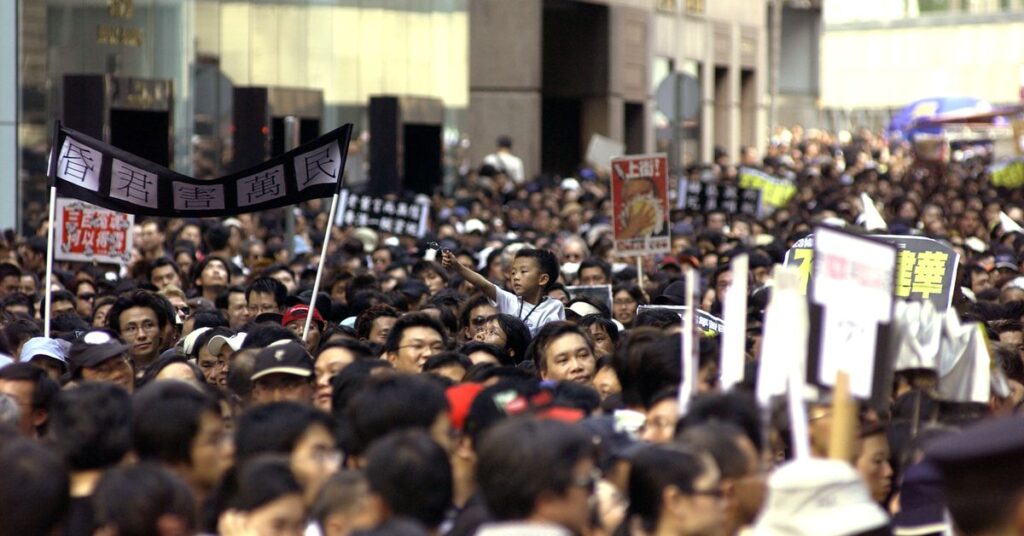Last week, the government of Hong Kong published the latest of a series of increasingly draconian national security laws. This one will target espionage, treason, and foreign political interference, and those found guilty of violating some of its tenets could be sentenced to life imprisonment.
This might sound niche or even well-intentioned; doesn’t the US have its own fears about foreign political interference in its elections? But this isn’t really about national security. It is, as Human Rights Watch put it, “Beijing’s latest effort to transform Hong Kong from a free society to an oppressed one where people live in fear.”
That effort has been underway at varying speeds since Hong Kong was returned to Beijing’s control in 1997. It is now all but complete.
Despite complaints from foreign governments, from what remains of Hong Kong civil society, and even from the city’s increasingly beleaguered international business community, Hong Kong’s now opposition-less legislature will almost assuredly fast-track it into law.
For Hong Kong’s 7.4 million citizens, the multi-year fight to maintain some semblance of self-government and political rights is all but over. There is no news here.
But the name of this new legislation — Article 23 — will jog the memory of anyone who has lived in or observed Hong Kong over the past quarter-century. It’s a name that was once a symbol of Hong Kongers’ refusal to submit to Beijing’s will and their willingness to take to the streets to fight for their liberty.
The backstory of Hong Kong’s Article 23
Article 23 is found in Hong Kong’s Basic Law, a city constitution of sorts worked out between Beijing and the British government in the years leading up to Hong Kong’s return to Chinese rule. It states, among other things, that Hong Kong’s government will “enact laws on its own to prohibit any ahct of treason, secession, sedition, subversion against the Central People’s Government” in Beijing.
Read the full article here





